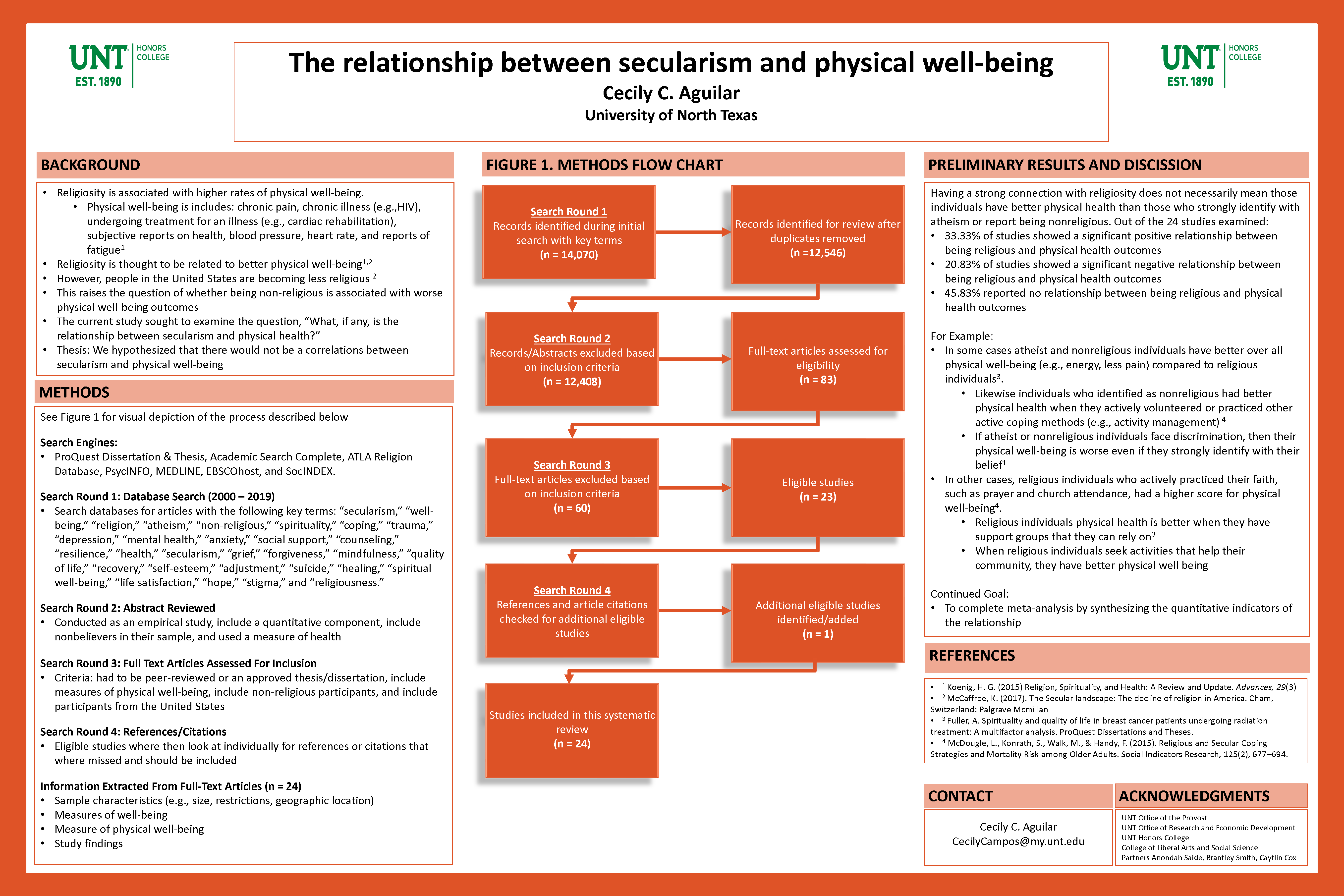First Name:
CecilyLast Name:
AguilarMentor:
Dr. Anondah SaideAbstract:
Being religious has been associated with positive health outcomes, however, society is becoming more secularized. This has increased interest in whether there are secular worldviews, behaviors, and communities that compensate for the loss of religious ones regarding health outcomes. Hence, this study sought to answer the question of “What, if any, is the relationship between secularism and physical health?” For a study to be included in the systematic review it needed to meet the following requirements: (1) peer-reviewed or an approved thesis/dissertation, (2) include measures of physical well-being, (3) include non-religious participants, and (4) include participants from the United States. The following search engines were utilized for articles published after January 1, 2000: MEDLINE, ProQuest Dissertation & Thesis, Academic Search Complete, ATLA Religion Database, PsycINFO, SocINDEX and EBSCOhost. Our search process yielded 25 studies. A systematic review of these studies revealed diverse methods and measures. The preliminary analyses indicate that secularism is generally unrelated to physical well-being with a few exceptions. This presentation will serve to unpack these findings and explore their implications for the relationship between worldviews and physical health.
Poster:





